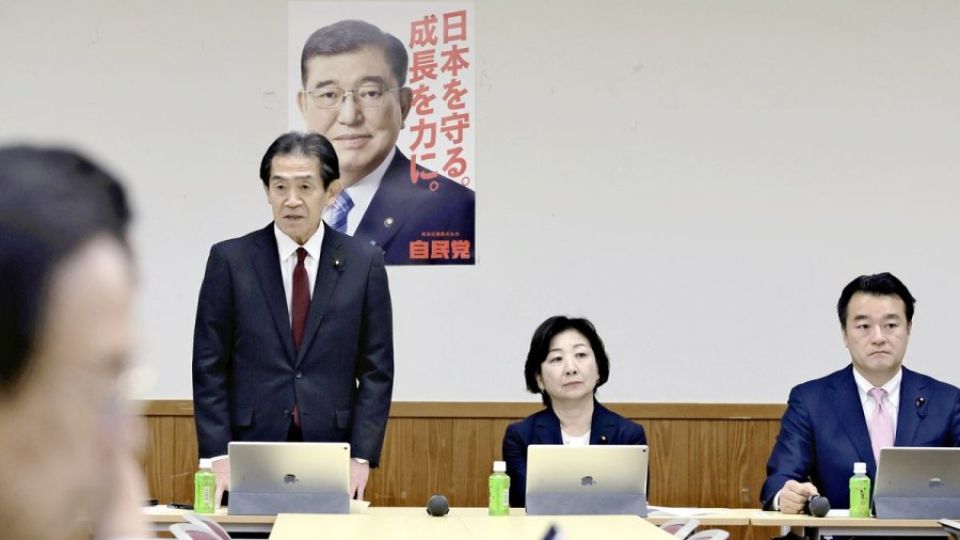December 19, 2024
TOKYO – The Liberal Democratic Party is discussing measures to deal with the posting of dubious information on social media that could affect elections.
The LDP Research Commission on the Election System, chaired by Ichiro Aisawa, held a joint meeting with the Research Commission on info-Communications Strategy on Tuesday. They intend to move forward with careful deliberations on the issue.
The party is considering revising the Public Offices Election Law and tightening regulations on social media platform operators.
At the meeting, Aisawa referred to the Hyogo gubernatorial election, in which misinformation was spread on social media during the campaign period.
“[Spreading such inaccurate information] goes far beyond what a fair and honest election is supposed to be,” he said. “We must take necessary measures with great concern.”
Prime Minister Shigeru Ishiba has also indicated that he will consider taking action on social media regulations related to elections.
Aisawa told reporters after the meeting that the LDP hopes to wrap things up before next summer’s Tokyo Metropolitan Assembly and House of Councillors elections. “The public’s confusion was real. We need to find a policy and direction to deal with the situation,” he said.
At the meeting on Tuesday, Internal Affairs and Communications Ministry personnel explained how social media contributors earn revenue based on the number of views they receive, among other things.
“It’s a big problem to use campaign-related content in social media posts to generate revenue,” said an LDP lawmaker who attended the meeting.
Making money by posting
The LDP’s decision to begin discussing social media regulations related to elections stems from concerns that the harmful effects of such posts cannot be overlooked ahead of the elections next year.
There are many hurdles to overcome in implementing specific laws and regulations, so a wide range of discussions involving both the ruling and opposition parties are also being sought.
The main topic discussed at the joint meeting on Tuesday was the problem of a social media system where contributors can make money by posting.
Citing the Hyogo gubernatorial election in November, Aisawa said: “[Some contributors] conducted activities with the clear goal of making money … From the perspective of ensuring how an election should be conducted, we cannot ignore this situation.”
Video-sharing sites typically reward contributors for the number of times their videos are viewed, which has led to the proliferation of videos related to high-profile elections, regardless of whether they are factually accurate and led to the radicalization of the content.
During the Hyogo gubernatorial election campaign, a large amount of information of unknown authenticity was distributed on social media. In the House of Representatives by-elections held in Tokyo Constituency No. 15 in April, videos of a political group’s leaders chasing the campaign cars of other candidates and other related videos were distributed on social media.
The revenue structure of social media has caused this kind of confusion, an observer said.
There were cases in various areas, such as in the Hyogo gubernatorial and the Nagoya mayoral elections, in which false claims were distributed that some candidates supported policies different from their actual positions.
A senior LDP official said the impact of social media on elections is serious.
Certain issues need to be dealt with to establish specific laws and regulations, including how to balance rules with the freedom of expression guaranteed by the Constitution and how to determine what information is false.

